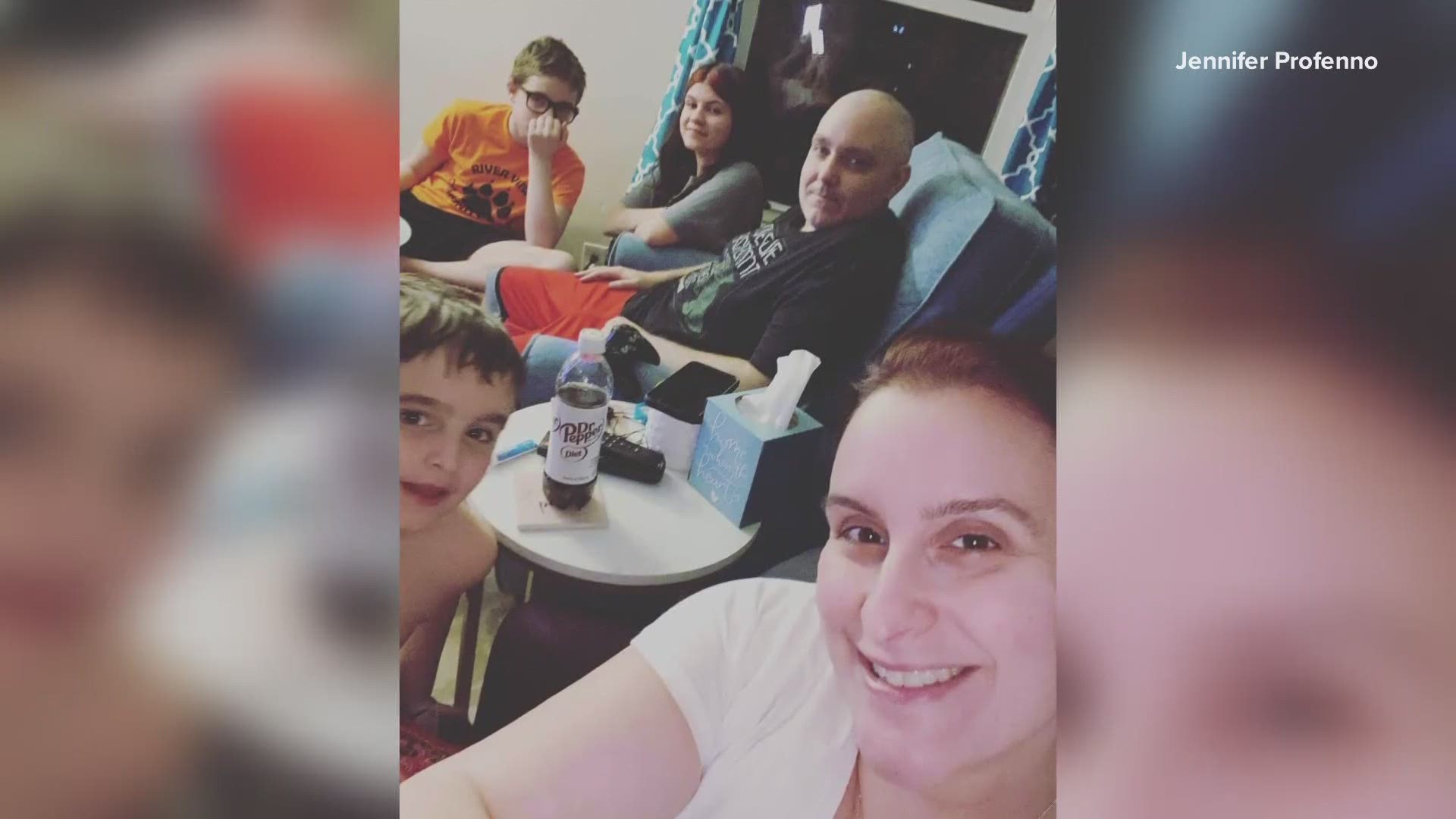GARDINER, Maine — For Gardiner mother Jennifer Profenno, the past few months have been tough and unlike anything she ever imagined. Virtually overnight, she took on the role of 'teacher', as have most parents around the state during the coronavirus pandemic. Profenno's situation has perhaps been slightly more challenging, though -- her three school-aged kids, spanning elementary, middle, and high school, all have special needs.
Profenno says her daughter, Faith, is in high school and has ADHD; her stepson, Alex, is in middle school and has autism; and her youngest son, Conrad (or 'Cal'), is in elementary school and has autism, ADHD, and a kidney disease. Normally, they all are on individual education plans, or IEPs -- which means on a day to day basis, they receive specialized instruction and services at school. Learning remotely during COVID-19, though, has made that more challenging without the in-person, one-on-one support of ed-techs.
"For us, the risk of the virus is far less than what could happen to our children if they don't get the right education," Profenno expressed to NEWS CENTER Maine. It's why she is hoping to see her children return to classrooms this fall -- but added even then, she is hesitant about certain requirements, like the request that students who can, wear a face mask.
"I'm not sure that they’ll get kids on the spectrum, or other kids with sensory issues or breathing issues, to be able to comply physically with wearing a mask all day," Profenno admitted.
She is not alone in her concerns, which is why officials at the local and state levels have been working diligently since schools first went remote in mid-March to devise plans for a number of scenarios. While all in-person plans include the use of PPE and face masks among students, Elisha Morris, the director of special services for MSAD 11, says exceptions may be made.
"We would certainly look at each student on a case by case basis and determine what is in the best interest for the student, that student's family, students in the building, and staff," Morris told NEWS CENTER Maine via Zoom.
Maine Department of Education commissioner Pender Makin offered similar guidance in a Zoom conversation with NEWS CENTER Maine on July 17, 2020.
"(The decision) will happen in a very individualized way, based on the student's medical situation; based on their social, emotional, and developmental readiness for a mask," Makin noted. "In the event that it's not advisable for a child due to a medical condition to wear a cloth-based covering, we have other options."
RELATED: 'It weighs heavily' -- parents, school officials react to fall reopening plans for Maine schools
Some parents are also concerned with what funding may look like for special needs agenda items, like hiring more ed-techs. In a press conference on July 17, the Maine DOE announced it has received $165 million so far in federal CARES Act funding for school expenses through December 31 this year. Commissioner Makin told NEWS CENTER Maine they are asking for $328 million in total -- and the part two request for funding would include money for hiring additional staff, supervisory staff, and contracted support.
Above all, officials want families to know they are doing their best to get answers and keep everyone safe.
"I don’t think anyone plan is going to be perfect, but we are certainly doing the best we can to return students and staff to school safely in the fall," Morris said.
For Profenno, that attention has been a long time coming.
"I think that unfortunately, a lot of the special needs community has been pushed aside for years," she told NEWS CENTER Maine. "I think this pandemic has kind of brought it to the forefront."
The Maine Department of Education is expected to release its first decision classifying schools districts as either red, yellow, or green COVID-19-risk zones at the end of this week. Those zones will ultimately determine whether students are allowed to return to in-classroom learning this fall, or if they will follow a hybrid or remote plan.

